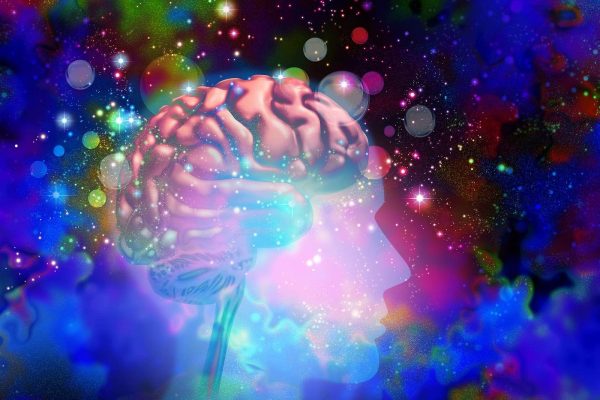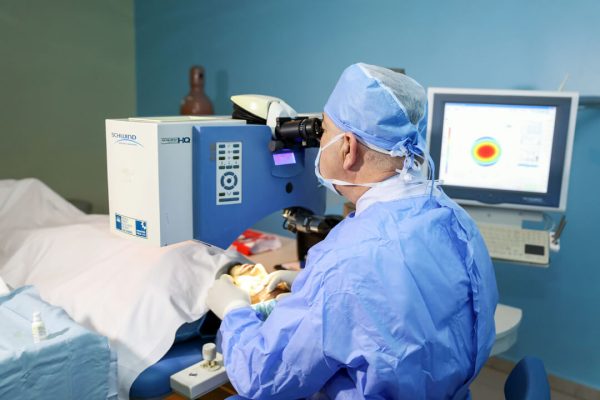Brief Overview of Cryptogenic Stroke
Of all the many types of strokes, cryptogenic stroke is a unique type of stroke with no definite cause to date. Put simply, it is a state of cerebral ischemia, either reversible or transient. According to statistics, about 1 in 3 ischemic strokes are cryptogenic. While the exact cause of stroke is mysterious, atrial fibrillation commonly appears as a crucial risk factor behind stroke.
This blog focuses on the primary key causes behind stroke, specifically cryptogenic stroke, commonly experienced symptoms, and much more. Continue reading the blog to learn more about cryptogenic stroke.
Understanding Cryptogenic Stroke
Cryptogenic stroke, an unexplained form of stroke, presents in about 30-40% of ischemic stroke patients. CDC (Centre for Disease Control) states the occurrence of cryptogenic stroke in 0.8 million Americans. Although ischemic stroke is the most common stroke and accounts for 87% of all cases, about 20-40% of stroke cases are cryptogenic.
To rule out the cause of cryptogenic stroke, imaging modalities such as intracranial vessel imaging coupled with a cardiac evaluation and a transesophageal echocardiogram may be helpful. In about 30-40% of cases, the stroke etiology remains unclear, regardless of diagnostic tests.
Possible Causes of Cryptogenic Stroke
The intricacies of cryptogenic stroke require deep digging to reach the root causes. With ischemic stroke, a blood clot travels to the brain, blocks and disrupts blood flow to the part of the brain, and results in ischemia, followed by stroke. In a few instances, more than one cause could be the culprit behind cryptogenic stroke. However, the common causes of cryptogenic stroke are:
- Atrial Fibrillation (AFib)
- Hypercoagulable state
- Aortic Arch Atheroma
- Patent Foramen Ovale
- Large Artery Atherosclerosis
- Thrombophilia
- Infections such as Endocarditis
Symptoms of Cryptogenic Stroke
The symptoms of cryptogenic stroke often resemble other types of stroke and generally depend on the part of the brain affected by the stroke. However, the symptoms commonly associated with cryptogenic strokes are:
- Severe headache
- Dizziness
- Loss of balance
- Lack of coordination
- Change in vision
- Sudden confusion
- Difficulty speaking
- Difficulty comprehending speech
- One-sided paralysis
Overview Of Ischemic Stroke
Ischemic stroke is a medical emergency caused by a blockage in a major artery supplying blood to the brain. If you or someone else experiences the symptoms listed below, it’s crucial to seek medical attention immediately, as early intervention can significantly improve the outcome of a stroke. Remember, time is of the essence when it comes to treating strokes.
- Trouble speaking or understanding speech
- Drooping of the face or difficulty moving an arm or leg
- Unilateral paralysis or weakness of the face, arm, or leg
- Blur or dark vision in one or both eyes
- Severe headache — often described as the worst headache of life
Risk Factors For Ischemic Stroke
The risk factors for ischemic stroke are categorized into modifiable and non-modifiable risk factors. Some of them include:
- Hypertension — a major risk factor for stroke
- Passive smoking or cigarette smoking
- High cholesterol levels contribute to plaque formation in arteries and blockage
- Diabetes
- Sedentary lifestyle
- Obesity
- Alcohol consumption
- Heart failure
- Cardiovascular diseases, including heart defects, heart infections, or irregular heart rhythms like atrial fibrillation
- History of stroke, heart attack, or transient ischemic attack
- Illicit drug use, especially substances like cocaine and amphetamines
Both modifiable and non-modifiable risk factors can be managed through lifestyle modifications such as a healthy diet, physical activity, etc., and, when necessary, with medical interventions, significantly reducing the risk of ischemic stroke.
Link between Atrial Fibrillation and Cryptogenic Stroke
Atrial fibrillation is a common type of irregular heart rhythm (arrhythmia) characterized by rapid and irregular beating of the atria (the heart’s upper chambers). In Afib, the stagnation of blood increases the likelihood of arterial blood clots that might travel from the atria to the brain, producing ischemic stroke. To establish a link between Afib and stroke, health professionals employ tests such as continuous monitoring methods, such as Holter monitors, event recorders, or implantable loop recorders.
Symptoms of Atrial Fibrillation
In individuals with Afib, some of the commonly experienced transient or permanent symptoms are:
- Heart palpitations
- Chest pain
- Fatigue
- Shortness of breath
- Weakness
- Lightheadedness
- Dizziness
- Fainting
- Confusion
- Intolerance to exercise
Risk Factors For Atrial Fibrillation
Some of the common risk factors that increase the likelihood of Afib are:
- Increased age
- Caucasians
- Biological sex — male
- Family history of atrial fibrillation
- Heart disease
- Structural heart defects
- Congenital heart defects
- Pericarditis
- History of heart attacks
- History of heart surgery
- Thyroid conditions (hypothyroidism)
- Metabolic syndrome
- Obesity
- Lung disease
- Diabetes
- Alcohol consumption
- Sleep apnea
- High-dosage steroid therapy
Mangement and Prevention
Cryptogenic strokes are indeed puzzling because no clear source of the blood clot is apparent. Thus, the underlying cause may be elusive. In individuals with a history of cryptogenic stroke, if Afib appears to be the culprit, following an appropriate treatment regimen consisting of anticoagulants is crucial to mitigate the risk of stroke.
For individuals who happen to have ischemic stroke, permissive hypertension is considered the primary treatment. A state in which blood pressure-lowering medications are stopped for up to 48 hours to increase blood flow to the parts of the brain deprived of blood flow from stroke. The purpose of Permissive hypertension is the promotion of blood flow to the brain through a congested passage. Other methods employed to enhance blood flow to the brain are:
- Emergency IV medication — Gold standard treatment
- Emergency endovascular procedures
Moreover, managing other stroke risk factors, such as hypertension and diabetes, is also crucial to overall stroke prevention.
Takeaway:
The intricate relationship between cryptogenic stroke and atrial fibrillation (Afib) lies in the potential cause of stroke. A quick recap of cryptogenic stroke and other strokes, including their causes and management options, underscores the importance of consulting healthcare professionals in the presence of any abnormal symptoms. In addition, it is vital to follow a healthy lifestyle and avoid smoking and other unhealthy habits to reduce the risk of stroke.
Revival Research Institute is a dedicated clinical research organization in the United States, constantly working towards empowering the health of individuals of all ages with cardiac and other conditions. Sign up and participate today to see if you qualify for any of their cardiology clinical trials.





